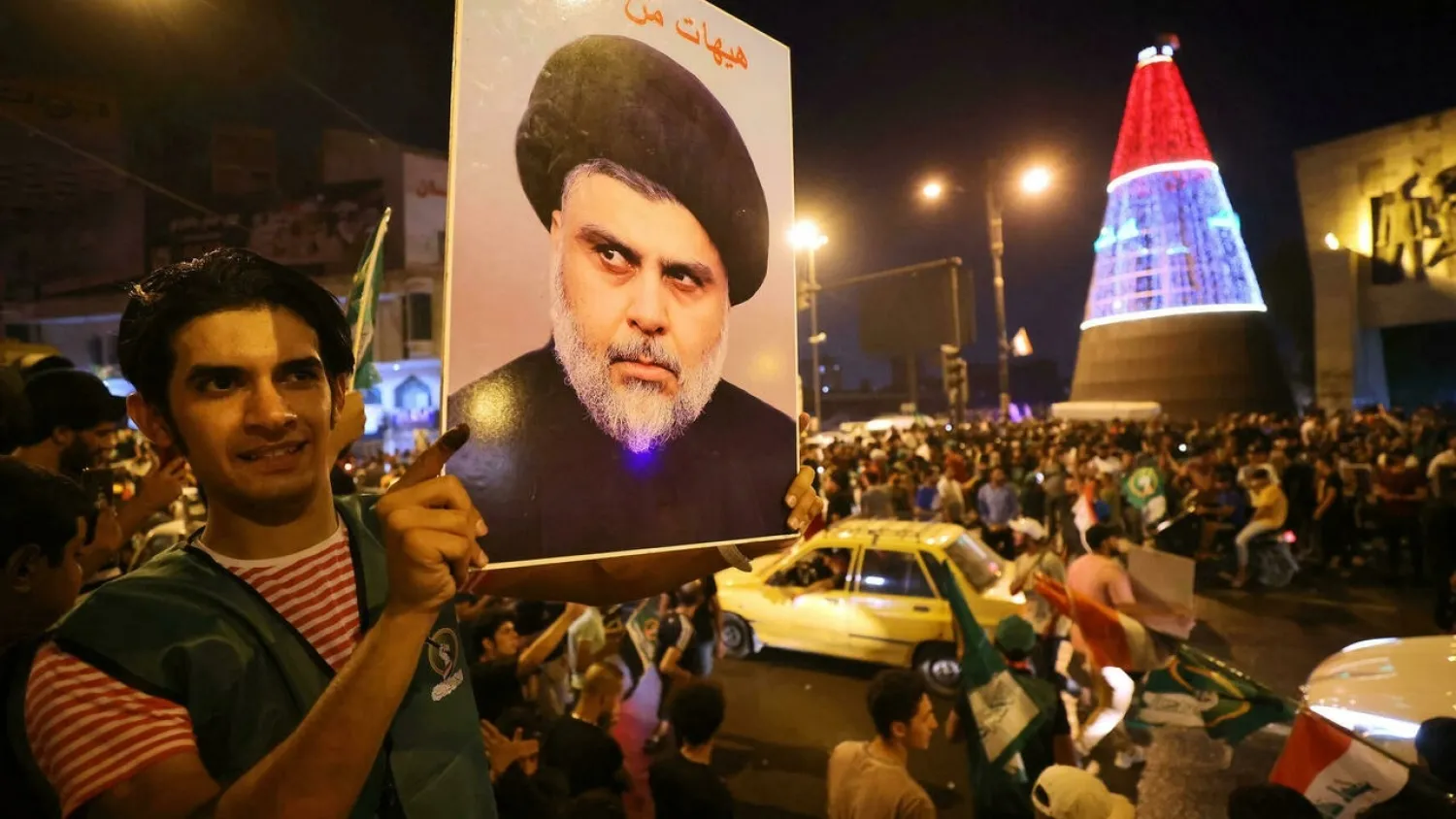Iraqi cleric Moqtada Sadr was confirmed Tuesday as the biggest winner of last month's parliamentary election, that had sparked charges of voter fraud from pro-Iranian factions.
The announcement of the results had been put off for weeks amid tensions over allegations of fraud and violence, that culminated on November 7 in an assassination attempt targeting Prime Minister Mustafa al-Kadhimi, from which he emerged unharmed. The attack was not claimed by any group.
Sadr's movement won nearly a fifth of seats -- 73 out of the assembly's total 329 -- the election commission said, after a lengthy manual recount of hundreds of ballot boxes.
Trailing behind Sadr's bloc in the Shiite camp with 17 seats was the Fatah (Conquest) Alliance, the political arm of the pro-Iran Popular Mobilization Forces (PMF) former paramilitary force, which is now integrated into Iraq's state security apparatus.
Hashed leaders had rejected the preliminary result -- which was sharply down from their 48 seats in the outgoing assembly -- as a "scam", and their supporters have held street protests chanting "No to fraud".
Their activists have staged sit-in protests outside Baghdad's ultra-secure Green Zone district, where the government, the assembly and many foreign embassies are located.
Despite the significant loss of seats, the PMF remains a powerful force in the Iraqi political scene, backed by Iran and with a strength of 160,000 fighters.
It can also count on a key ally that made a surprise comeback in the polls -- former premier Nuri al-Maliki's pro-Iran State of Law Alliance clinched 33 seats in the legislature.
Analysts have warned that -- in a country still recovering from decades of war and chaos, and where most parties have armed wings -- political disputes could spark a dangerous escalation.
Backroom negotiations
The final results must now be sent to the federal court for ratification.
The parliament will then hold its inaugural session and elect a president, who will in turn appoint a prime minister to be approved by the legislature.
In multi-confessional and multi-ethnic Iraq, the formation of governments has involved complex negotiations ever since a US-led invasion toppled Saddam Hussein in 2003.
Posts and ministries have typically been handed out according to compromises reached by the main blocs in backroom talks, rather than to reflect the numbers of seats parties have won.
Sadr has called for a "majority" government with other leading blocs -- possibly excluding powerful Shiite actors like Fatah.
Analysts said he could strike deals with Sunni and Kurdish groups, such as those of outgoing parliament speaker Mohammed al-Halbussi's bloc, with 37 seats, or the Kurdistan Democratic Party, with 31.
"Now it's a matter of who will back down," said Hamdi Malik of the Washington Institute for Near East Policy.
"So far, neither side has given in to pressure. That is why the chance of escalation and clashes is high at this stage."









